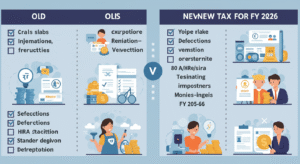Understanding Your Tax Obligations
Tax obligations represent a fundamental aspect of financial responsibility for both individuals and businesses. Understanding these obligations is crucial for ensuring compliance with government regulations and for making informed financial decisions. Among the various types of tax obligations, the most prominent include income tax, corporate tax, payroll tax, and sales tax, each with its unique characteristics and implications.
Income tax is a primary obligation for individuals, calculated based on taxable income, which encompasses wages, salaries, and other earnings. Taxable income can be adjusted through various deductions, such as personal exemptions and business expenses, which reduce the overall taxable amount. Tax credits may also be available to offset the tax due, further alleviating the financial burden on taxpayers.
For businesses, corporate tax applies to profits generated, similar to how income tax functions for individuals. Understanding the difference between gross income and net profits is essential, as it influences calculating the corporate tax owed. Additionally, businesses must adhere to payroll tax obligations, which include Social Security and Medicare taxes withheld from employees’ paychecks and matched by the employer. This type of tax is crucial for funding vital social services.
Sales tax, an indirect tax on consumer purchases, is levied at the point of sale. Companies involved in retail need to understand their obligations related to sales tax collection and remittance, which varies by jurisdiction. Failure to comply can result in substantial penalties, making knowledge of the local tax laws paramount.
Throughout this discussion, it becomes clear that taxpayers must grasp key concepts such as taxable income, deductions, and credits. Clearly understanding these elements assists individuals and businesses in navigating their tax obligations effectively, ultimately contributing to better fiscal health and compliance with tax laws.
Strategies for Effective Tax Management
Effective tax management is a critical component for both individuals and businesses aiming to minimize their tax obligations while remaining compliant with relevant laws. The foundation of good tax management lies in proactive tax planning. Individuals and organizations should assess their financial circumstances regularly and anticipate their tax situations, as this foresight allows for more strategic decision-making throughout the tax year. Early planning is essential, paving the way for informed actions that can reduce potential liabilities.
Another key strategy involves meticulous record-keeping. Maintaining organized financial records enables taxpayers to accurately report income and claim deductions. This practice not only simplifies the filing process but also supports the taxpayer in the event of an audit. Utilizing digital tools and applications can further streamline record management, making it easier to keep track of receipts, invoices, and other pertinent documents.
Moreover, understanding and leveraging available tax deductions and credits is paramount in minimizing tax liabilities. Taxpayers should familiarize themselves with the various allowable deductions specific to their circumstances, whether related to business expenses, education, or healthcare. Utilizing tax credits, which directly reduce the amount of tax owed, can be particularly beneficial, as they serve to maximize any potential refund or minimize the total tax bill.
In addition to these strategies, the use of tax software can provide invaluable support for taxpayers. Many programs simplify the tax filing process and can alert users to possible deductions and credits they may qualify for. Additionally, seeking professional advice offers personalized insights and assistance tailored to complex tax situations, ensuring compliance while optimizing tax savings.
Finally, staying informed about changes in tax legislation is crucial, as tax laws can frequently evolve. By keeping abreast of new regulations and adjustments to existing laws, taxpayers can make timely decisions and actively adjust their tax strategies as needed. Through these comprehensive approaches, individuals and businesses can significantly enhance their tax management effectiveness and overall financial health.



